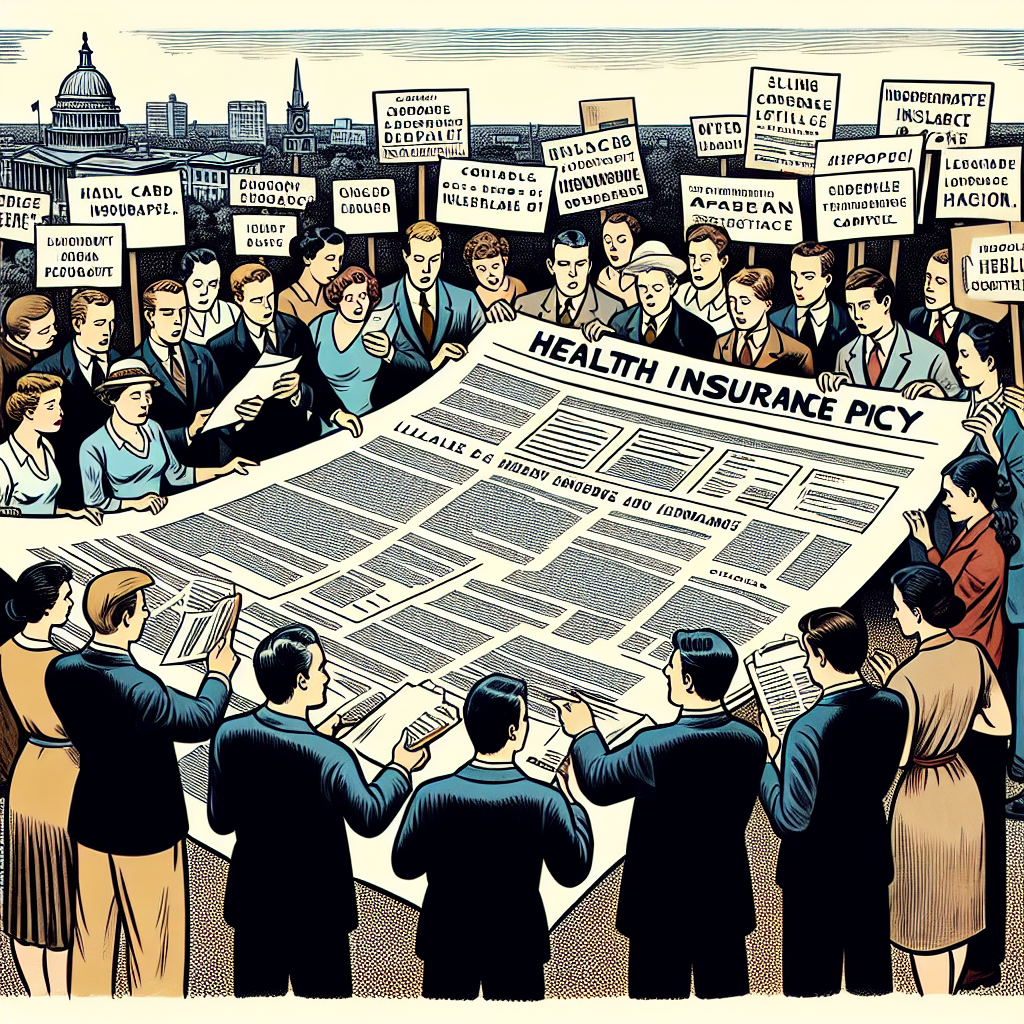Filed under Health Insurance on
Maximize Benefits with Enrich Health Insurance Tips

In today's ever-evolving healthcare landscape, having a reliable health insurance plan is paramount. However, simply having health insurance is not enough; understanding how to maximize its benefits can significantly impact your financial well-being and peace of mind. Enrich health insurance tips serve as your guide to navigating the complexities of your policy, ensuring you get the most value from your investment.
Understanding Your Health Insurance Plan
The first step to maximizing your health insurance benefits is to fully understand your plan. Health insurance policies can vary greatly, with different providers offering a range of coverages, premiums, and deductibles. Here's how to ensure you know the ins and outs of your plan:
- Read the Policy Document: Thoroughly read the policy’s fine print. Pay special attention to what procedures and treatments are covered, your annual deductible, out-of-pocket maximums, and any co-payments required.
- Network Providers: Check if your preferred healthcare providers are within the insurance company's network. Staying within-network usually ensures lower out-of-pocket costs.
- Preventive Services: Familiarize yourself with the preventive services covered at no extra cost, such as flu shots or annual physical exams. These services can help catch potential health issues early.
Strategies to Maximize Your Health Insurance Benefits
Armed with a basic understanding of your policy, it's time to dive into specific strategies that help you take full advantage of what your health insurance has to offer:
1. Schedule Regular Check-Ups
Preventive care is often fully covered under most health insurance plans. Scheduling regular health check-ups and screenings can prevent illnesses before they require more extensive and expensive treatment.
For instance, a North Carolina family of four regularly utilized their annual wellness visits and managed to detect hypertension at an early stage in both parents. This proactive approach not only maintained their health but also saved them significant medical costs down the road.
2. Use Telemedicine Services
Telemedicine has become an invaluable resource, providing medical consultations without the need to leave your home. Many health insurance providers cover telemedicine services, offering a convenient and cost-effective way to receive medical advice.
Consider a busy professional in New York who used telemedicine to consult with a dermatologist about a persistent skin condition. This approach saved them transportation costs and reduced time away from work.
3. Leverage Health Savings Accounts (HSAs)
If you have a high-deductible health plan, a Health Savings Account (HSA) can be a beneficial tool. Contributions to an HSA are tax-deductible, and funds can be used to pay for a wide range of medical expenses, thereby reducing your taxable income while also preparing for future health needs.
4. Stay Informed About Prescription Drug Coverage
Prescription medications can be a significant cost, but staying informed about your health insurance plan's prescription coverage can mitigate these expenses. Compare in-network and out-of-network pharmacies, explore generic drug options, and understand the coverage tiers of various medications.
A California resident managing diabetes cut their medication expenses in half by switching to a generic drug covered at a higher tier, illustrating the importance of understanding your prescription benefits.
5. Understand Emergency vs. Urgent Care
Many people mistakenly visit the emergency room for non-life-threatening conditions, incurring high costs. Instead, consider using urgent care facilities for minor injuries or illnesses, which are often covered by insurance at a lower rate than emergency room visits.
A Chicago parent learned this lesson the hard way when their child's sprained ankle resulted in a hefty ER bill, compared to their neighbor who visited an urgent care for a similar injury and paid significantly less.
Avoiding Common Insurance Pitfalls
Maximizing your health insurance benefits also involves navigating potential pitfalls effectively. Here's how to avoid common insurance-related mistakes:
1. Missing the Open Enrollment Period
Open enrollment is the annual period during which you can make changes to your health insurance plan. Missing this window can restrict your options for an entire year. Mark your calendar and prepare to review your plan options as this period approaches.
2. Skipping Policy Review
Your health insurance policy can change annually. Ignoring these changes could lead to unanticipated costs. Always review any notifications from your insurer and assess whether your current plan continues to meet your needs.
3. Not Tracking Medical Expenses
Maintaining a record of your medical expenses helps ensure that all claims are accurately processed. Save receipts and records of all medical visits and procedures to avoid disputes or errors with your insurer.
Consider Jane from Texas, who meticulously tracked her medical visits and discovered a billing error that saved her hundreds of dollars in overcharges.
4. Overlooking Out-of-Network Benefits
While staying in-network is usually the most cost-effective choice, having a clear understanding of out-of-network coverage can be crucial for specialist visits or unique medical needs. Assess these benefits carefully before seeking out-of-network care.
A New Jersey family successfully navigated an out-of-network surgery for their child after confirming partial coverage, which kept their costs to a minimum while accessing the necessary care.
Frequently Asked Questions
- What should I do if my preferred doctor is not in-network?
- How can I dispute a denied claim?
- How does a high deductible affect my health insurance usage?
- What is the difference between an HMO and a PPO?
- Do preventive services always require co-payments?
If your doctor is not in-network, consider negotiating a rate directly with the provider or asking your insurance company whether exceptions can be made. Alternatively, look for an in-network provider who offers similar care.
Start by reviewing the denial notice and your policy details to understand the reason. Contact your insurer's customer service for clarification and file an appeal if necessary. Providing detailed medical documentation can strengthen your case.
A high deductible often means lower monthly premiums but more out-of-pocket expenses before the insurance coverage starts. Use an HSA for medical expenses and weigh the cost implications of each healthcare service carefully.
An HMO (Health Maintenance Organization) typically requires you to stay within a network of providers and get a referral from a primary care doctor to see a specialist. A PPO (Preferred Provider Organization) offers more flexibility in choosing providers and does not require referrals.
In most cases, preventive services, such as vaccinations and screenings, are covered at no extra cost when performed by an in-network provider. It's crucial to verify this with your insurance to avoid unexpected charges.
Maximizing your health insurance isn't just about saving money; it's about making informed decisions that enhance your overall well-being. By employing these enrich health insurance tips, you can effectively navigate the healthcare ecosystem, ensuring you and your family receive the best care available while safeguarding against unnecessary financial strain.





